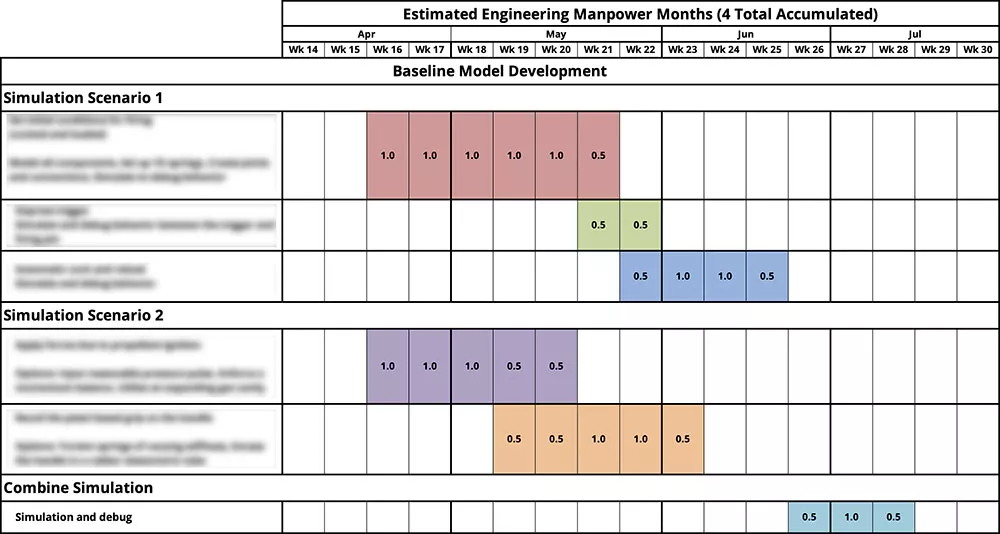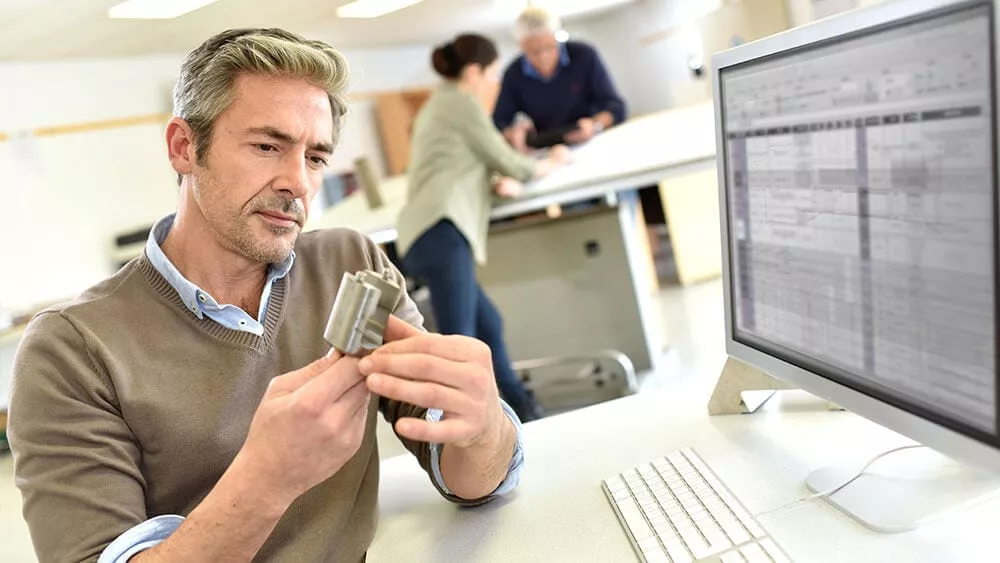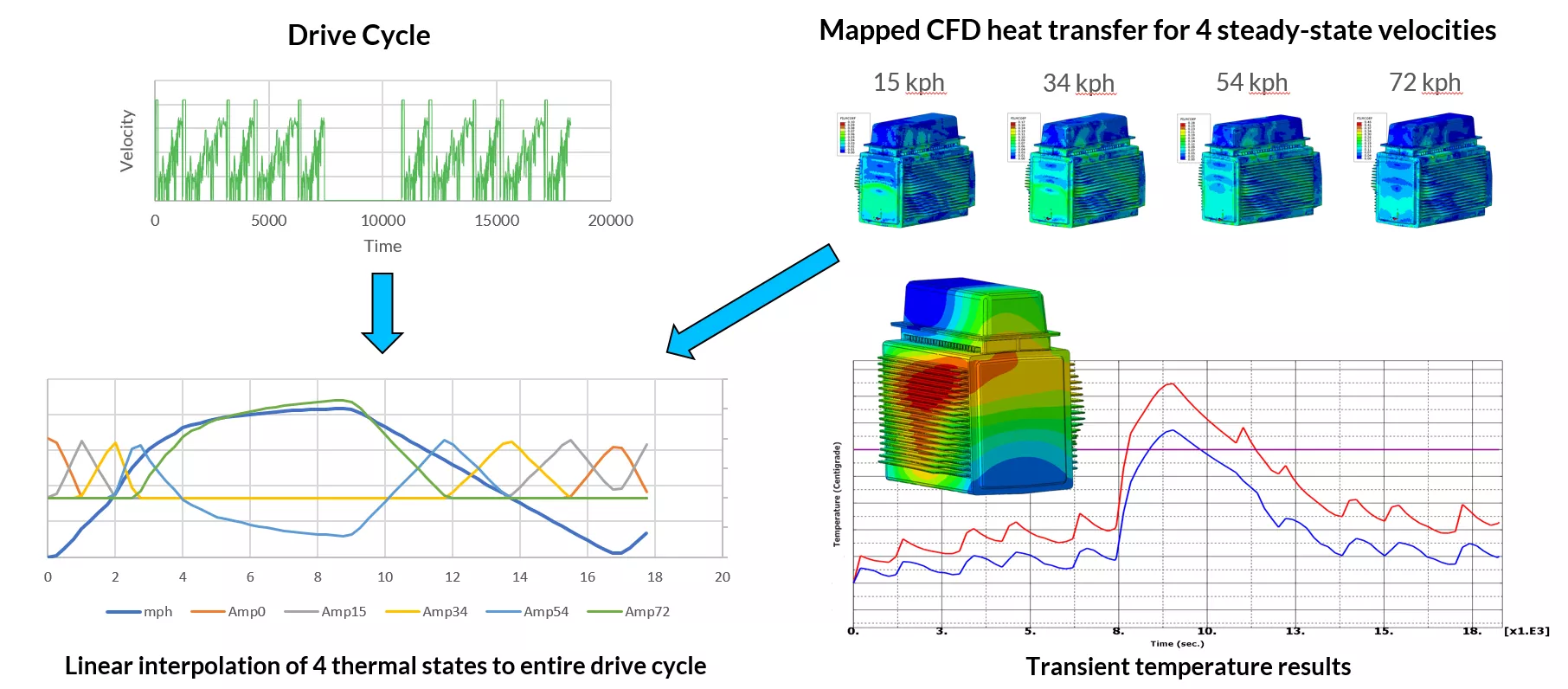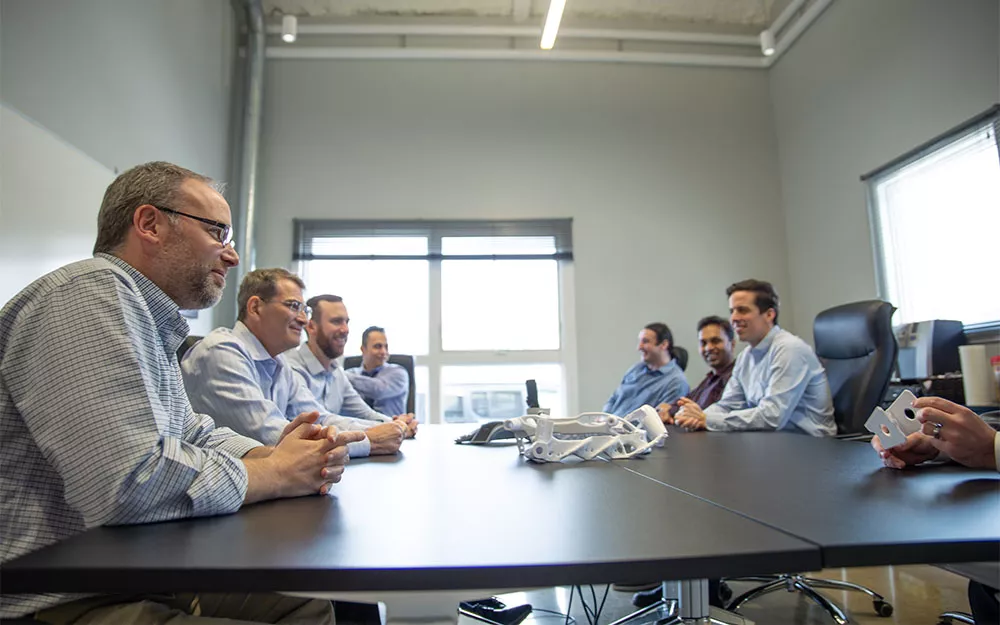8 Ways Working with an FEA Consultant Improves Your Bottom Line
If you’re viewing your FEA consultant solely as an expense, you’re missing the key contributions they’re making to your company’s bottom line.
As advanced simulation software like Abaqus becomes ever more important to developing highly competitive products, manufacturers are looking for ways to expand their FEA capabilities. Many of those manufacturers may begin by looking to hire FEA or CFD or emag simulation engineers, but this may not be the most cost-effective approach.
This is where engineering simulation consultants come in. While working with a team of FEA or CFD consulting specialists may seem expensive at first, there’s value to building partnerships with an expert simulation team, rather than attempting to grow an in-house FEA department from scratch. And if you do have an in-house FEA department, then an FEA consultant may be the best way to complete projects that are otherwise out of reach for your manpower and know-how.
However, a trusted FEA consultant can achieve even more than this. Ideally, the team you hire to help you manage your FEA work should be a true partner, improving process efficiency to the extent that they more than pay for themselves. If that seems like a bold claim, read the following eight ways an FEA consultant can improve your bottom line, and see for yourself.
1. FEA Consultants Let You Manage Heavy Workloads More Efficiently, Making it Easier For You to Land More Contracts.

Imagine landing two big contracts back to back, and not having the manpower to handle the workload. No business wants to turn away work, but at the same time, taking on work without the bandwidth to get it done can lead to missed deadlines and broken trust with customers. A team of FEA consultants who can manage the overflow gives you the freedom to accept more contracts with greater confidence.
2. An FEA Consultant Gives You Access to Multiple Disciplines of Expertise, Without Having to Hire More Employees.
You may already have a team of FEA engineers. However, if you want to tackle a project that requires expertise beyond your team’s capabilities, you may find yourself in a tough position. Hiring a new engineer with industry or software specialization that you would rarely leverage isn’t wise, but neither is moving forward with a project using an in-house engineer who doesn’t have the right skills.
Working with an FEA consultant means you have access to engineers with diverse, specialized, and well-developed skill sets. As more and more projects demand more advanced and accurate simulations (such as multiphysics) or specialized problem-solving (fatigue expertise, for example), having a broad knowledge base becomes all the more important.
3. Working with an FEA partner Means You Don’t Have the HR Burden of Growing a Department.
Hiring new team members is time-consuming and expensive. Not only that, it comes with a certain degree of uncertainty. The time you put into recruiting a new engineer can be undone if that talent accepts a job at another company, leaving you understaffed while you go through the process of finding and hiring a replacement.

An FEA consultant provides a more stable relationship. Any employee turnover on their end will be managed by their HR team, and with a larger pool of engineers in the first place, these changeovers will not be felt on your end, leaving you with more resources to focus on your business.
4. FEA Consultants Give You All the Benefits of the Latest and Greatest Simulation Tools without Having to Learn or Pay for them Yourself.
If you want to commit to getting the most out of FEA software, there is so much to gain, but it can become costly if licenses, hardware, training, and planned usage are not optimized. How does this affect your budget? Are your current computers up to the task of running the heavy simulations you want to run? How long will it take your engineers to become proficient? How will you be sure you’ll make sufficient use of your new investment?
Depending on your business conditions and your aspirations, you may very well have favorable answers to all these questions. But you can avoid them entirely if you hire an FEA team to do the work for you. You can leverage their full professional and financial commitment to these simulation tools, when and only when you need to.
5. A Trusted FEA Consultant Can Be a Valuable Sales Partner.
You want to walk into your sales meetings knowing you have the experts at your side. If your in-house engineers have never handled a project involving fluid dynamics before, they may not be able to help you land a sale where that expertise is a requirement. But your FEA partner probably does have just such an engineer, and if that person can come to your sales meetings with you, they can be the expert in the room who helps close the deal.
Our team has handled these requests from our clients, and we have even been able to create and turnaround models on short enough notice to contribute to our clients’ winning the deal. This is the kind of close relationship you want to have with your FEA partners.

6. FEA Consultants Work with Your Team to Develop Custom Methodologies that Can Be Used Again and again.
For many businesses, one of the most valuable services an FEA consultant can provide is support in designing a repeatable methodology for their team. By working directly with your engineers, an FEA consultant can design a custom workflow that allows your engineers to work more efficiently or accomplish new tasks, like custom subroutining, multicode or multiphysics simulations, advanced feature utilization, and more.

Our FEA engineers have even worked alongside our clients, providing training and support as they get their FEA team off the ground. The improved efficiency and higher value simulation achieved by methodology development and training often offset many of the costs of working with an FEA team in the first place.
7. A Long-term Relationship with an FEA Consultancy Can Become a High-efficiency, Low-management Extension of Your Team.
FEA consulting isn’t just for one-off, short-term projects. There are economies of scale that you can take advantage of by (semi-)permanently delegating a portion of your workload to another team. Consultants are, by their nature, fast learners, and FEA consultants in particular are very talented at maximizing their process efficiency. Show us the ropes once, and after a few repeats, we will have a highly streamlined process for doing that job.
Through repetition, you can eliminate the usual operational, communicational, and due-diligence inefficiencies associated with hiring outside help. This further increases the value you get from your consulting budget. At a certain point, it becomes as simple as throwing a design “over the wall,” and we toss back a result as if we were just down the hall from you. This can free your own human, hardware, and software resources for more interesting matters.
8. Your FEA Consultant Can Also Be a Software Support and Expertise Resource.
Business software of any kind can be difficult to implement, maintain, and support. FEA software in particular has quite specific hardware requirements and ideal user environments. Those who aren’t aware of this may not be getting the full value of the software they’re licensing. They could even pay for effectively useless hardware, like the wrong GPU.
Powerful engineering software can also be tricky to use and keep up with. It’s not just that something might be hard to do—old methodology can be superseded by better and easier ways, and version upgrades can bring critical performance improvements or new feature additions of great interest. Very open-ended tools can have a very high skill ceiling, which means that what you can accomplish with the tool is only limited by your experience and your imagination.
Having someone to talk to about these issues can be valuable. If your in-house FEA team has a relationship with consulting FEA experts and software vendors, that is a resource that can provide advice and input from first-hand experience with FEA software as both a power user and a certified instructor and reseller.
Working with An FEA consultant means your team can handle a greater volume of work more efficiently and with higher quality.
With the GoEngineer advanced simulation team, for nearly two decades it has been our business to help our clients execute on high-end simulation, whether through software or consulting services. Many of our engineers have advanced degrees in fields ranging from mechanical and electrical engineering to life sciences. We rely on Abaqus, CST Studio Suite, 3DEXPERIENCE SIMULATION, and SOLIDWORKS Flow Simulation with the latest HPC hardware resources to handle the largest jobs. The range of our client base also means we have worked directly on projects in almost every major industry.

If you need a skilled team of engineers to help you manage your current FEA workflow, or if you are trying to build the simulation capabilities of your business and need a trusted partner to get you started, contact us today. We can discuss your needs and determine how our capabilities align with your business goals.
Related Articles
How the GoEngineer Simulation Team Is Expanding Customer Capabilities
Abaqus and CATIA Now Available from GoEngineer: Not Just For Enterprise!
SOLIDWORKS Flow Simulation Transient Pressure Pulse Study

About Zachary Yates
Zack Yates is GoEngineer's Software Product Marketing Manager based out of Ann Arbor, MI. He comes to the position after many years as a consulting CAE Analyst with a focus on Abaqus. He has a degree in music from the University of Michigan and loves to be creative, learn new things, and travel the world.
Get our wide array of technical resources delivered right to your inbox.
Unsubscribe at any time.